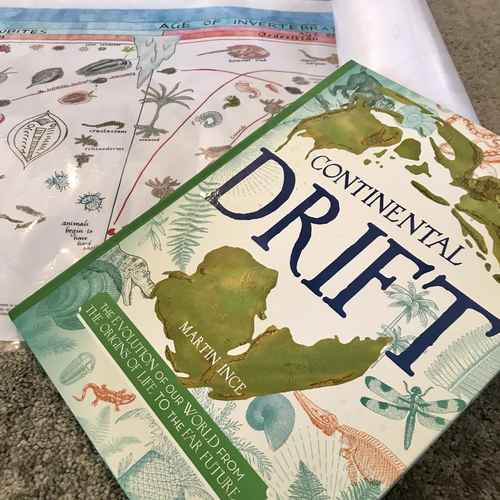My Blog
9-12
Who's the Second Plane child?
A transformation takes place around the age of six.
"What happened to my sweet, lovable, and dependable little five-year-old," parents often ask me.
The transition from the first plane of development (the stage between birth and age six) to the second plane (the stage between ages six and 12) can be a challenging one if we don't take the time to understand who our children are and what they need from us and the world.
Over the summer, I put together a short video to help adults begin to unde…
The Second Plane Child

Note: This essay was one of many that I wrote as part of my AMI elementary training in Bergamo, Italy. You can find a complete bibliography at the end of the post.
METAMORPHOSIS
The child enters the second plane of development somewhere around his sixth birthday, and traverses that phase for approximately six years (through age 12). It is important to note that this development, like that which came before it and that which will follow, is transitory. Therefore, the changes the child experien…
Great Books for Our Great Stories
Many of you have asked me to share my favorite books that align with the Great Stories. So, here they are! I have used every single one of these books either in my elementary classrooms or in our homeschool life. Some are child-friendly reference books, but many have activities to inspire follow-up work.
*This page contains affiliate links. I receive a small compensation when you purchase through these links, and it allows me to continue bringing high-quality Montessori content at no cost to yo…
Worm Moon
Tomorrow we'll have the first Supermoon of the year - the Worm Moon! Do you know where the name comes from? Here's a short story I wrote (meant to be told orally). I hope you can share it with your children, or at least enjoy its message.
*****
Look up! What do you notice? Did you observe that the full moon is larger than usual? We call it a Supermoon, and your eyes aren’t deceiving you… The moon IS larger than usual because it's closer than usual, and that's because the moon’s orbit aro…
Raising Creative Problem-Solvers
Do you constantly referee children's disagreements? Do you tend to side with one child, frustrating the other? Or do you offer solutions, only to be ignored? If you're nodding in response to any of these questions, then read on!

The scenario:
My 4.5-year-old daughter and 8-year-old son share a room. It's the only place in the house where they're allowed to play LEGOs, so the plastic pieces don't take over our living room/homeschool area. Both kids love LEGOs, but my older son likes to li…
Story of Chemistry: Part I
I wrote this story a while back for the Upper Elementary group I inherited that hadn't been exposed to chemistry. I never got around to writing Part II but if you take on that challenge, let me know!
*******
Pretty much all that we see or touch in our seemingly solid existence is made from an unimaginable number of tiny atoms, each a different type of element or building block. When you combine these atoms in different ways, they make up everything that we can see in the Universe.
Do y…
Why We Hike
"Why do we have to do this hike?", complained my almost-eight-year-old son, his arms drooping by his sides. We had been hiking for almost two hours, had just conquered a half-mile 500-foot elevation gain, and still faced another mile uphill before reaching the summit. 
My husband, unable to stomach my son's complaints, put our younger daughter in the carrier and charged up the hill.
I took a deep breath and silently asked myself, "Why do we make them hike?" Walking beside my son at his madde…
The Art of Introducing a Lesson
Often, the most challenging part of giving a lesson is getting the children excited and ready to learn. Here are seven strategies to ensure your presentation gets off to a good start.
1. Check your attitude: You need to believe in the value of what you're going to present. The children will smell your fear or hesitation a mile away. If a particular topic scares you, spend more time with it. Read, listen to podcasts, watch videos, use your hands to explore the concept, and find new ways of lo…
Categories
- 3-6 (8)
- 6-9 (26)
- 9-12 (8)
- Positive Discipline (2)
- Conscious Parenting (12)
- Montessori Curriculum (9)
- Preparation of the Adult (14)
- Preparation of the Environment (11)
- Montessori Principles (11)
- Montessori Homeschooling (20)
- Language Arts (3)
- Math (3)
- Geography (2)
- Biology (1)
- History (2)
- Practical Life (1)
- Montessori Stories (4)


